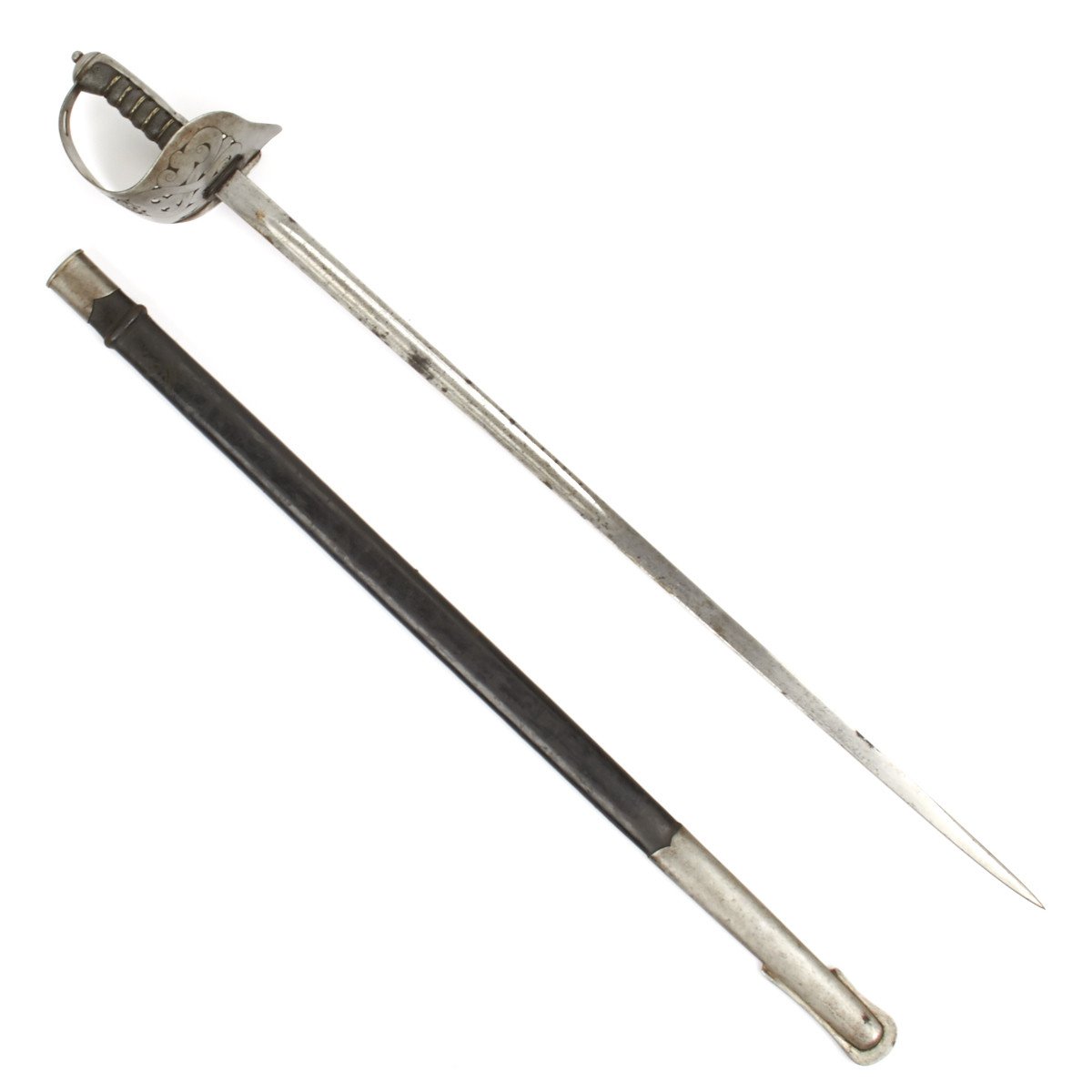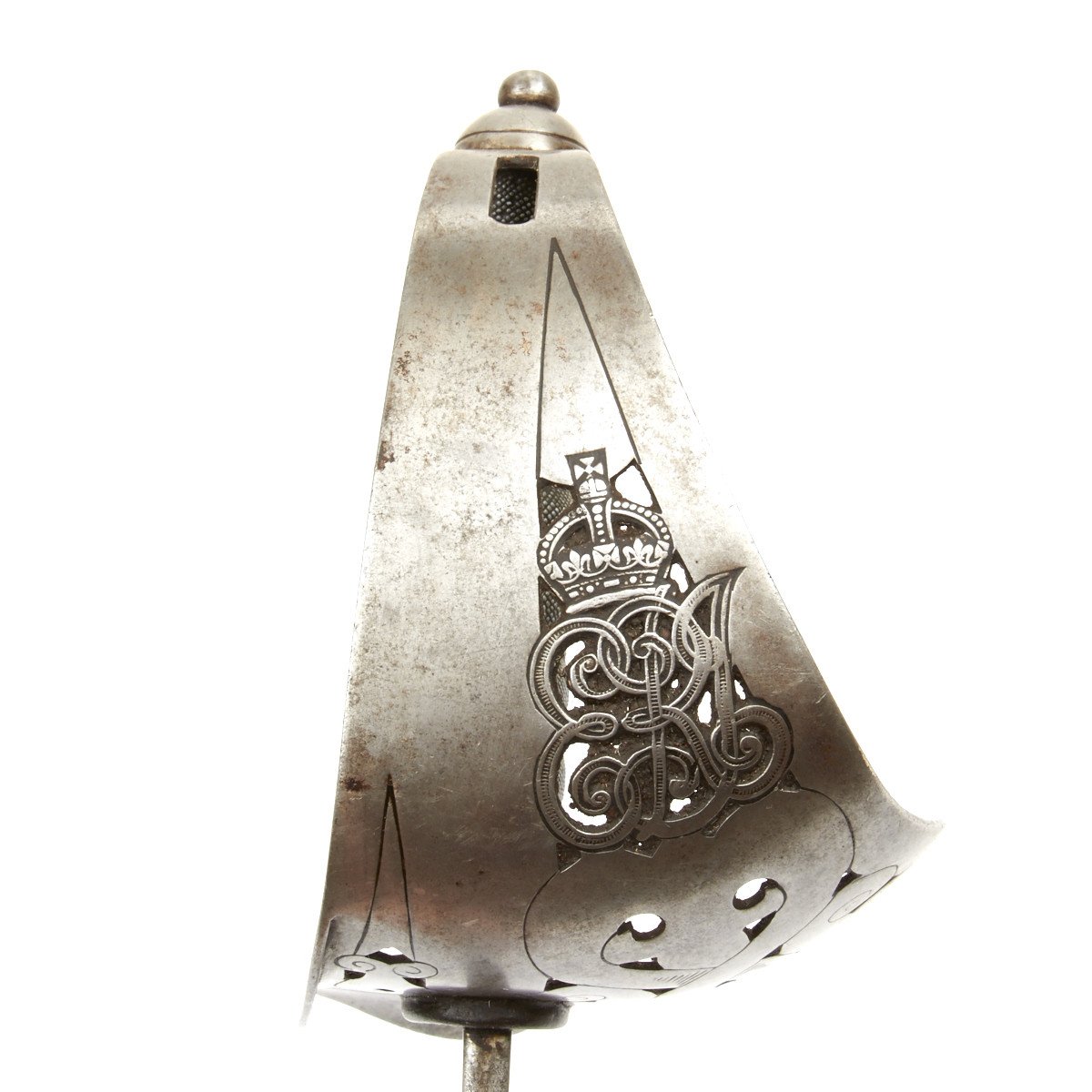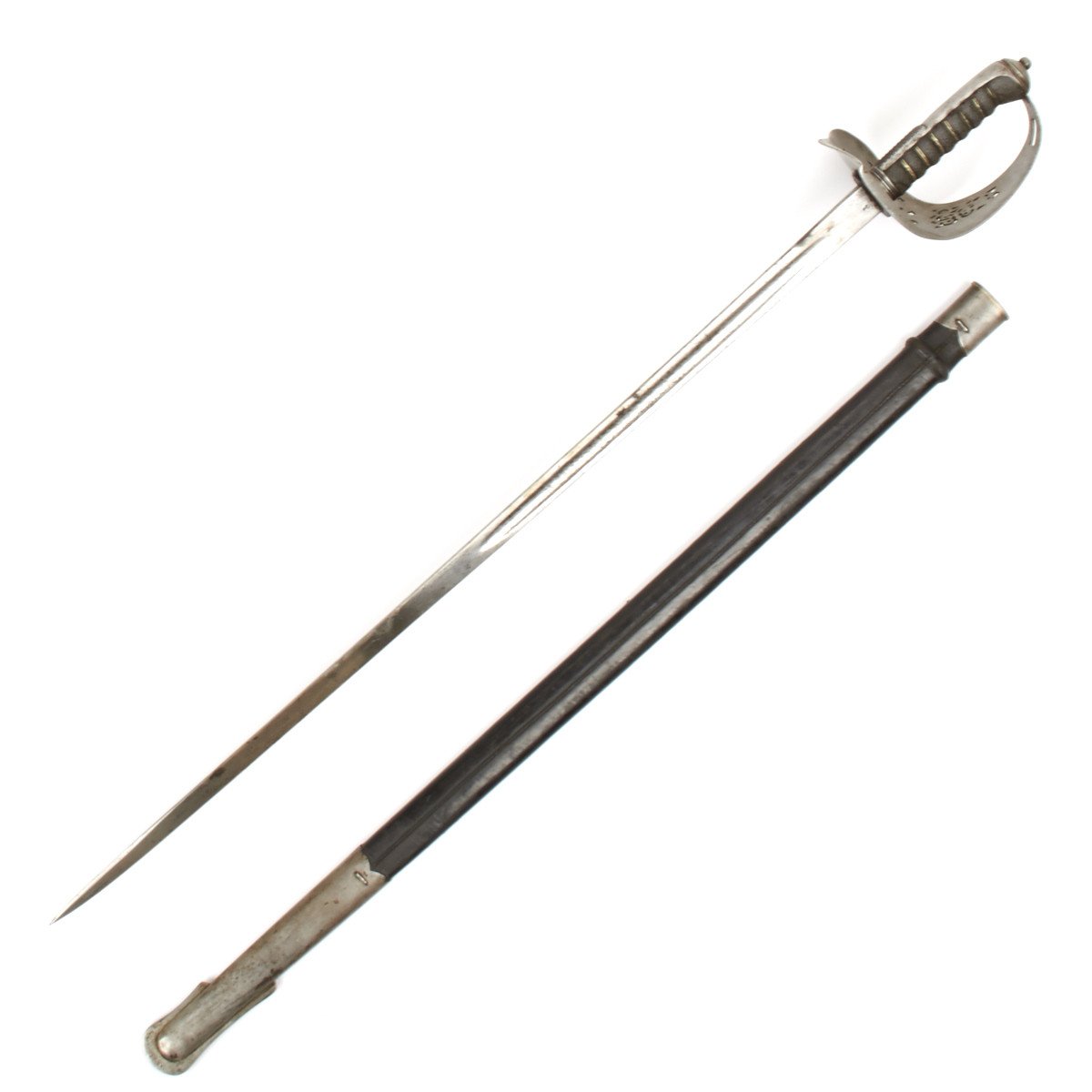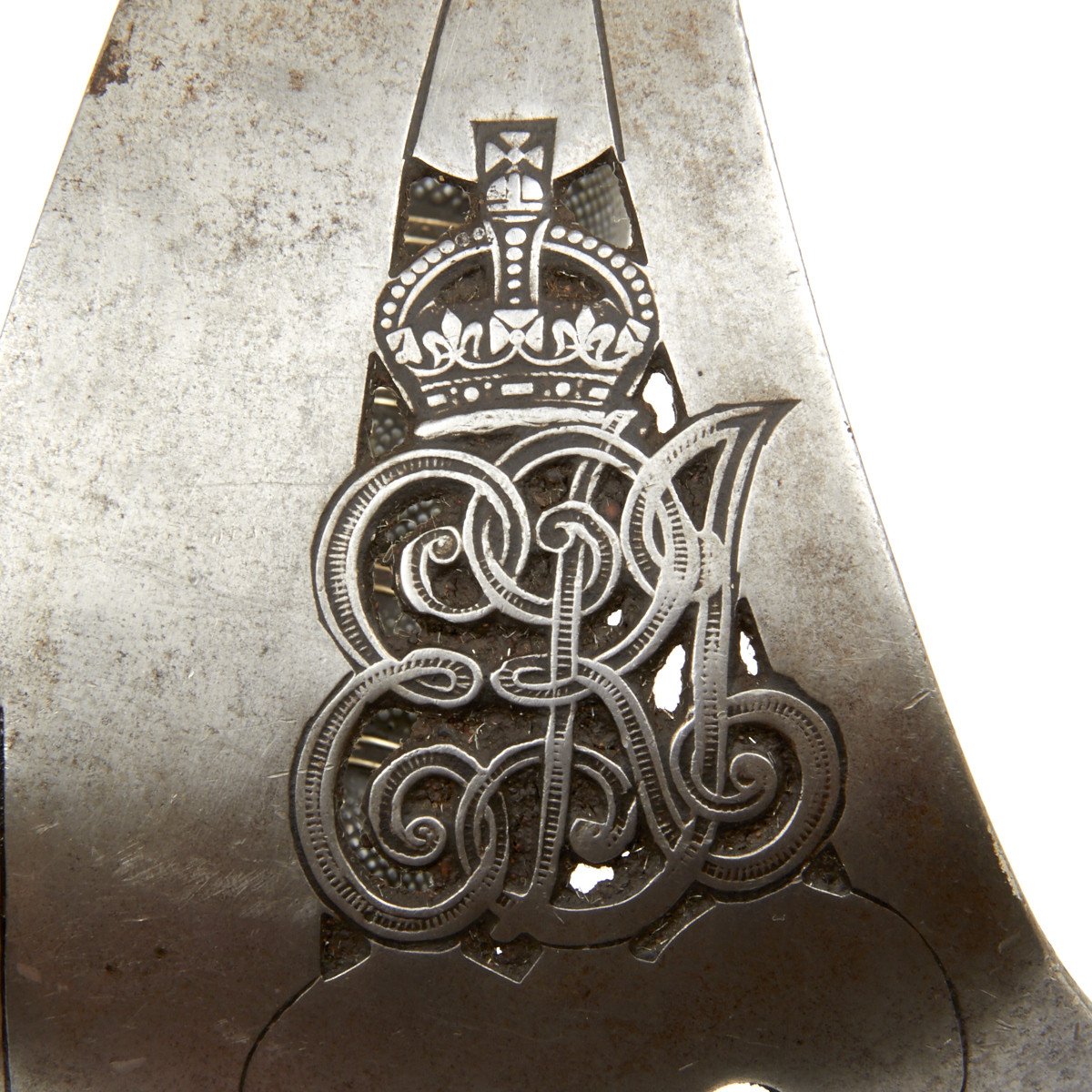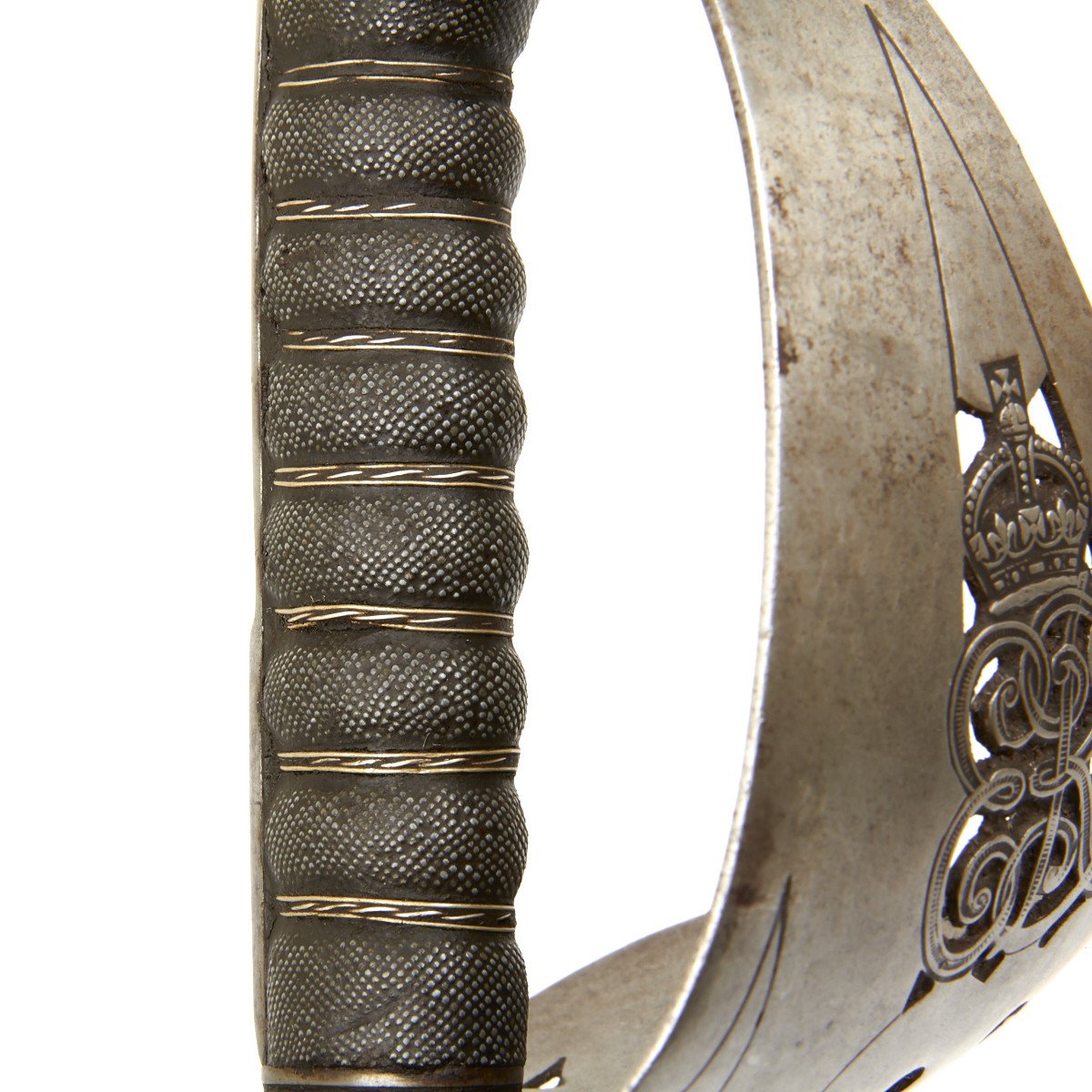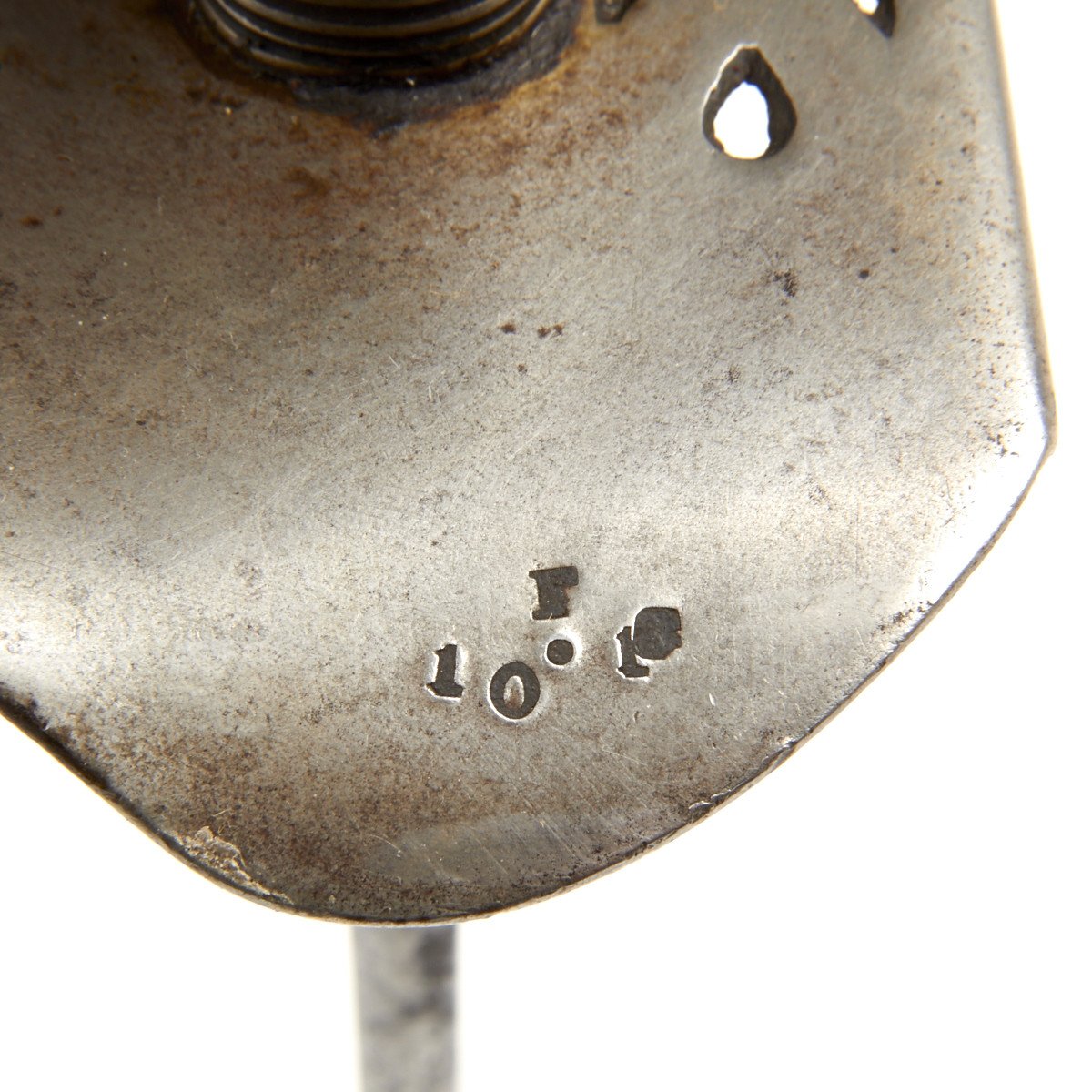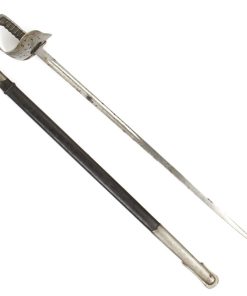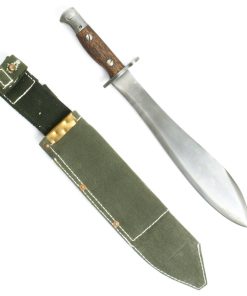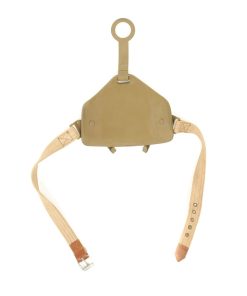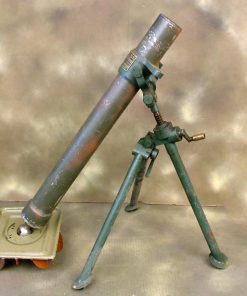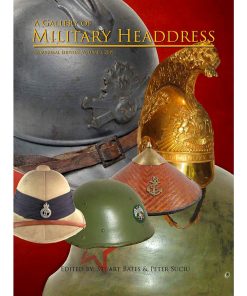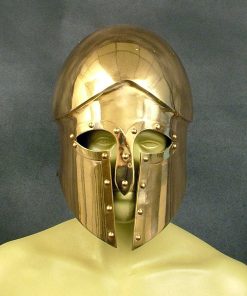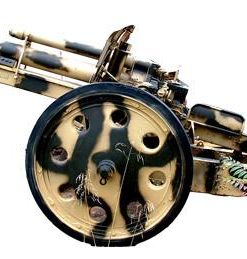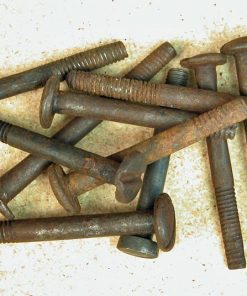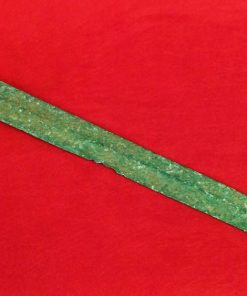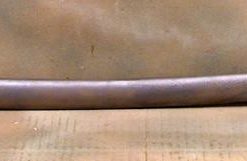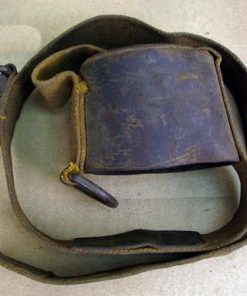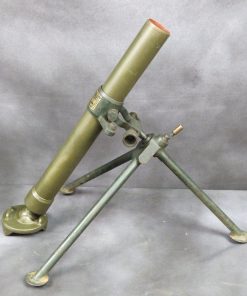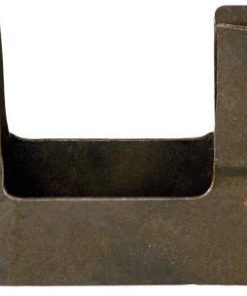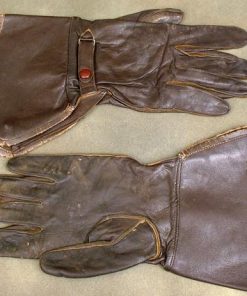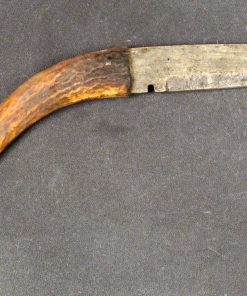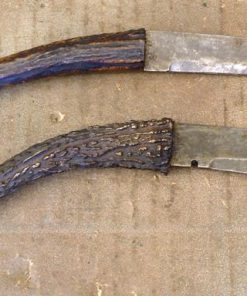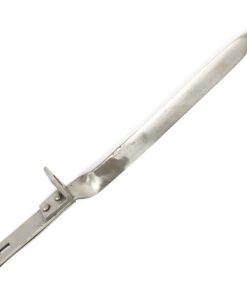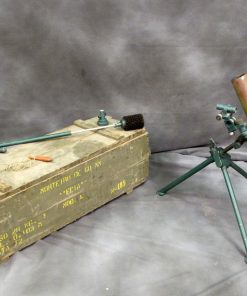Original British P-1898 Infantry Edward VII Emperor of India ERI Cypher Sword Original Items
$ 595,00 $ 178,50
Original Item: Found in our Nepalese Armory purchase, these are original British manufactured and issued P1898 Infantry Sword swords in original field scabbards. Each is marked with various British proofs, acceptance dates, and manufactures.
The steel hilt guard bears a Royal Cypher of Edward VII showing intertwined ERI standing for Edward Rex Imperator.
These swords were almost certainly carried by British Officers leading Gurkha troops in World War One. Each sword was originally issued with two scabbards, one all steel that was sometimes even nickel plated for parade use as well as a steel mounted dark leather scabbard referred to as a field scabbard that was intended for use in battle. Only a field scabbard is included with the purchase of this sword.
Condition and markings may vary slightly. Very few available, act quickly, they wont be around for long. Approximately 40.5 inches in length.
Edward VII (Albert Edward; 9 November 1841 6 May 1910) was King of the United Kingdom and the British Dominions and Emperor of India from 22 January 1901 until his death.
The eldest son of Queen Victoria and Prince Albert of Saxe-Coburg and Gotha, Edward was related to royalty throughout Europe. Before his accession to the throne, he served as heir apparent and held the title of Prince of Wales for longer than any of his predecessors. During the long reign of his mother, he was largely excluded from political power, and came to personify the fashionable, leisured elite. He travelled throughout Britain performing ceremonial public duties, and represented Britain on visits abroad. His tours of North America in 1860 and the Indian subcontinent in 1875 were popular successes, but despite public approval his reputation as a playboy prince soured his relationship with his mother.
As king, Edward played a role in the modernisation of the British Home Fleet and the reorganisation of the British Army after the Second Boer War. He re-instituted traditional ceremonies as public displays and broadened the range of people with whom royalty socialised. He fostered good relations between Britain and other European countries, especially France, for which he was popularly called “Peacemaker”, but his relationship with his nephew, Kaiser Wilhelm II, was poor. The Edwardian era, which covered Edward’s reign and was named after him, coincided with the start of a new century and heralded significant changes in technology and society, including steam turbine propulsion and the rise of socialism. He died in 1910 in the midst of a constitutional crisis that was resolved the following year by the Parliament Act 1911, which restricted the power of the unelected House of Lords.
| Hand Select | No, Yes |
|---|
Fast Shipping with Professional Packaging
Thanks to our longstanding association with UPS FedEx DHL, and other major international carriers, we are able to provide a range of shipping options. Our warehouse staff is expertly trained and will wrap your products according to our exact and precise specifications. Prior to shipping, your goods will be thoroughly examined and securely secured. We ship to thousands clients each day across multiple countries. This shows how we're dedicated to be the largest retailer on the internet. Warehouses and distribution centres can be located throughout Europe as well as the USA.
Note: Orders with more than one item will be assigned a processing date depending on the item.
Before shipping before shipping, we'll conduct a thorough inspection of the items you have ordered. Today, the majority of orders will be delivered within 48 hours. The delivery time will be between 3-7 days.
Returns
The stock is dynamic and we cannot completely manage it because multiple stakeholders are involved, including our factory and warehouse. So the actual stock may alter at any time. It's possible that you may not receive your order once the order has been made.
Our policy is valid for a period of 30 days. If you don't receive the product within 30 days, we are not able to issue a refund or an exchange.
You can only return an item if it is unused and in the same state as the day you received it. You must have the item in its original packaging.
Related products
Uncategorized
Uncategorized
Uncategorized
Uncategorized
Uncategorized
Uncategorized
Band of Brothers ORIGINAL GERMAN WWII Le. F.H. 18 10.5cm ARTILLERY PIECE Original Items
Uncategorized
Uncategorized
Uncategorized
Uncategorized
Uncategorized
Uncategorized
Angolan Rebel 1970s era 60mm Inert Display Mortar from Angolan Civil War Original Items
Uncategorized
Uncategorized
Armoured Fighting Vehicles of the World: AFVs of World War One (Hardcover Book) New Made Items
Uncategorized
Uncategorized
Uncategorized
Uncategorized
Australian WWII Owen MK1 Machine Carbine SMG Custom Fabricated Replica with Sling Original Items
Uncategorized
